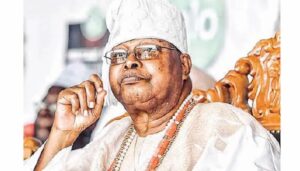
On Monday, December 2, 2024, Justice Jude Onwuegbuzie ruled on the final forfeiture of an estate in Abuja, marking the Economic and Financial Crimes Commission’s (EFCC) single largest asset recovery since its establishment in 2003.
The estate, located on Plot 109, Cadastral Zone C09, Lokogoma District, Abuja, spans 150,500 square meters and comprises 753 duplexes and other residential apartments.
The property, forfeited to the federal government, belonged to a former high-ranking government official. The EFCC’s action aligns with its mandate to ensure that proceeds of corruption and fraudulent activities do not benefit the perpetrators. The Commission relied on Section 17 of the Advance Fee Fraud and Other Fraud Related Offences Act No. 14, 2006 and Section 44 (2)(b) of the 1999 Constitution of the Federal Republic of Nigeria to secure the ruling.
In delivering his judgment, Justice Onwuegbuzie stated that the respondent failed to provide sufficient justification to retain the property. “Having been reasonably suspected to have been acquired with proceeds of unlawful activities, the property is hereby finally forfeited to the federal government,” he declared.
The final forfeiture was preceded by an interim order obtained on November 1, 2024, before the same judge. The EFCC is actively investigating the former official linked to the fraudulent construction of the estate. This forfeiture underscores the agency’s commitment to stripping individuals of assets derived from illicit activities.
The legal basis for the forfeiture is rooted in Part 2, Section 7 of the EFCC Establishment Act, which empowers the Commission to investigate individuals whose properties and lifestyles are inconsistent with their legitimate income sources.
EFCC Executive Chairman, Mr. Ola Olukoyede, has emphasized the critical role of asset recovery in combating corruption and financial crimes. Speaking recently before the House of Representatives Committee on Anti-Corruption, he highlighted the significance of asset tracing as a strategy to weaken corrupt actors.
“If you understand the intricacies of financial crime investigations, you’ll realize that recovering even one billion naira is a battle. That’s why we simultaneously launch investigations and asset tracing. Asset recovery is a powerful tool in the fight against corruption. Allowing suspects access to the proceeds of their crimes enables them to fight back. Depriving them of these assets weakens their capacity to resist justice,” Olukoyede explained.
This landmark recovery is a testament to the EFCC’s intensified efforts in its fight against economic and financial crimes, leveraging asset forfeiture as a deterrent to corruption.






